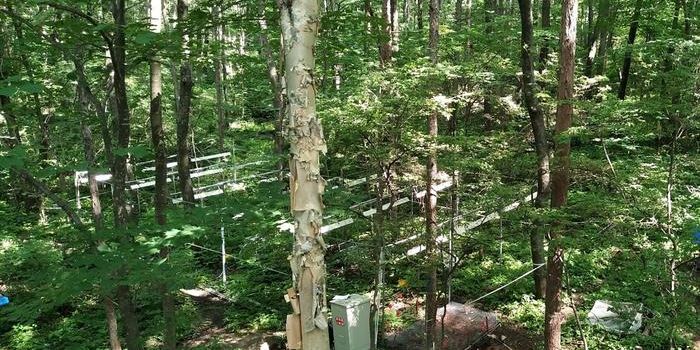Study Analyzes Elephant Movement Patterns Relative to Resource Availability
The world and its many landscapes are continuously changing, so it should come as no surprise that wild animals follow suit to adjust to the dynamic environment they live in. In most cases, they seek locations rich in the natural resources they need to live, such as food and water, as these can become scarce in certain situations.
Quantifying changes to the environment and comparing them with the movement patterns of wild animals can be a challenging task, but that didn’t stop curious researchers from Etosha National Park, Namibia from exploring the psyche of wild African elephants. They wanted to learn more about the factors that drive movement pattern deviations in the species, and the results of their study have been published this week in the journal Ecological Monographs.
Image Credit: Pixabay
"African elephants (Loxodonta africana) are ideal for this study—they have excellent cognitive abilities and long-term spatial memory, which helps them return to areas with better food and water," elucidated study lead author Miriam Tsalyuk from the University of California, Berkeley. "African savannas are unpredictable with a prolonged dry season, where knowledge of the long-term availability of resources is highly advantageous."
Related: Elephant poaching impacts the entire ecosystem
To realize their goal, the researchers attached GPS-assisted tracking collars to at least 15 different African elephant groups and waited as satellites recorded their movements on a map. With some of the observations lasting just a few months, and others lasting up to 4.5 years, the researchers established a comprehensive movement database as the GPS data flowed in.
While glancing at the maps, the researchers could see what the elephants were doing – whether they were spending time near water sources or hanging out in dense vegetation. From these clues, the researchers could deduce the animals’ behavioral patterns in relation to environmental changes, both natural and human-made.
Surprisingly, the patterns answered one of the researchers’ longstanding questions: can African elephant populations remember and return to locations that served their needs well in the past? As it would seem from the cold, hard data, they can; the famous old saying 'an elephant never forgets' may hold water after all.
"The results were very surprising indeed," Tsalyuk added. "We thought that if we could capture the vegetation conditions as close as possible to the time the elephants passed there, we could better explain preference for a particular location. But we found the complete opposite—elephants have a stronger preference for locations where forage conditions have been better for many years, over the forage availability they see around them at the moment."
Related: Scientists expose East African poaching patterns for the first time
Another astonishing finding was how the elephants seemed to prefer walking along human-made dirt roads whenever possible, perhaps because to conserve energy when compared to walking along uneven terrains. This finding was particularly puzzling given the longstanding notion that wild animals avoid roads due to the dangers they impose.
The changing of the seasons also seemed to play a role in the elephants’ movements. Although the animals were more likely to explore their landscape when they knew there was an abundance of food around them, this changed in the dry season when food and water became scarcer. In these circumstances, the animals restricted their movements to conserve energy.
Conservationists are always trying to devise new ways of protecting elephants in their natural habitat, and one way to do that is to learn more about their natural behavior. Studies like this will go on to fortify conservation efforts and help prevent these wonderful animals from going extinct.
Source: Science Daily, Ecological Monographs









